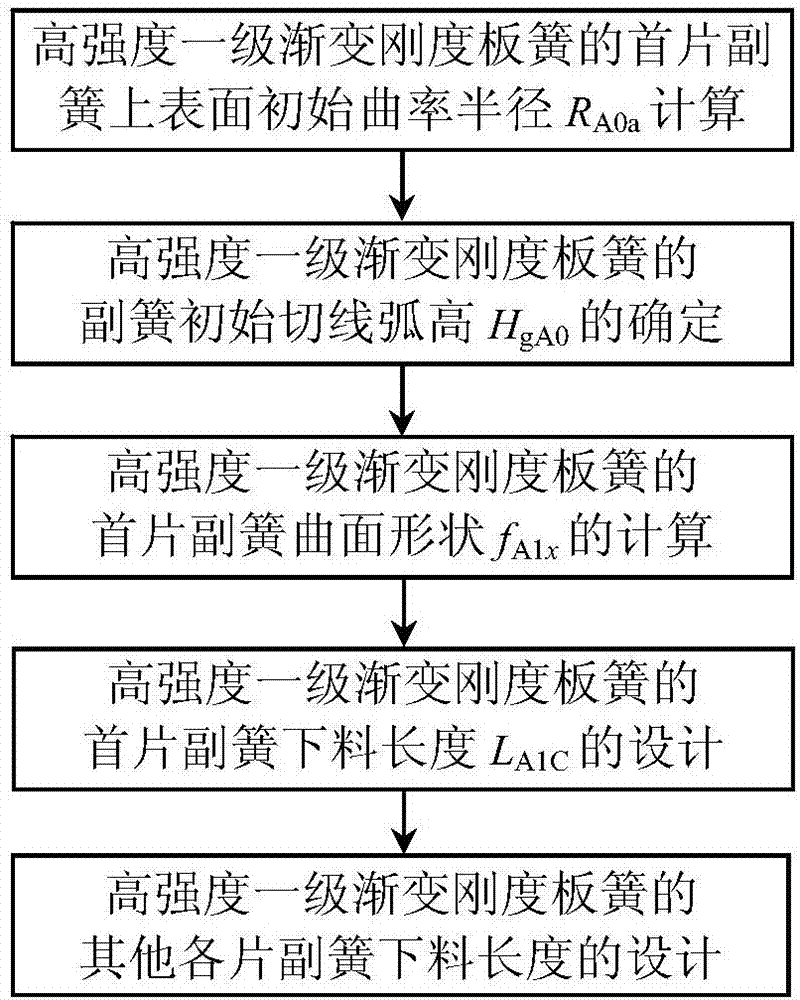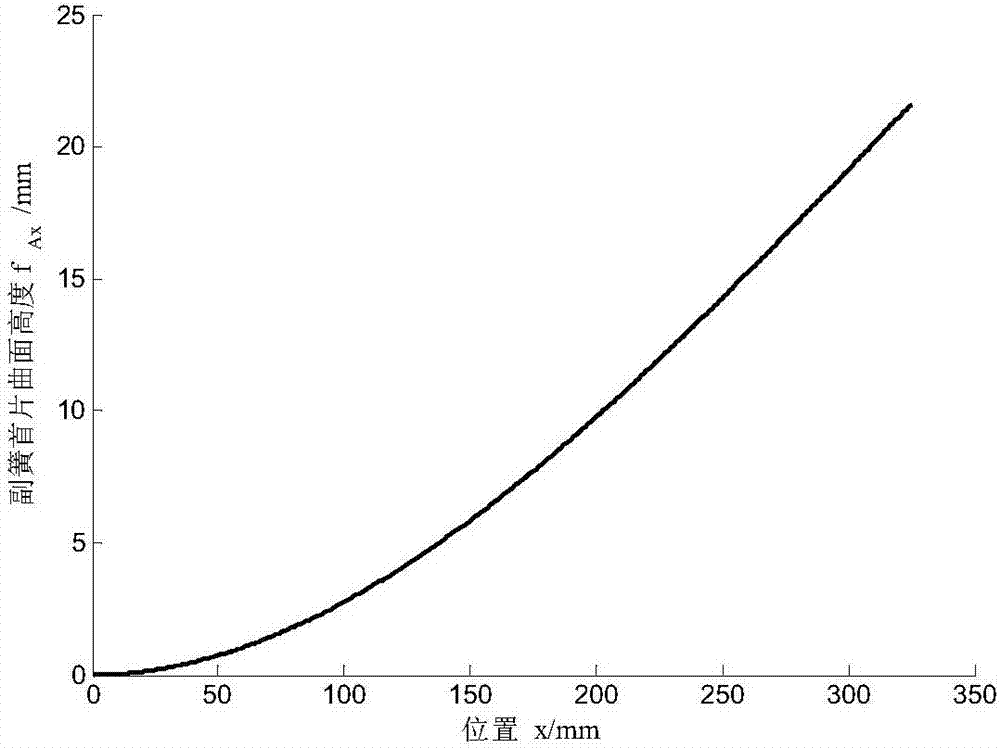Method for designing blanking lengths of auxiliary springs of high-strength first-grade plate spring having gradually changing stiffness
A high-strength, leaf spring technology, applied in the field of vehicle suspension leaf springs, can solve the problem of not giving a high-strength first-level gradient stiffness leaf spring, it is difficult to obtain an accurate blanking length design value, and the calculation of the surface shape of the auxiliary spring is very complicated and other issues, to achieve the effect of reducing design and test costs, saving materials, and improving processing technology
- Summary
- Abstract
- Description
- Claims
- Application Information
AI Technical Summary
Problems solved by technology
Method used
Image
Examples
Embodiment
[0037] Embodiment: the width b=63mm of a certain high-strength one-level gradual stiffness leaf spring, half L of the saddle bolt clamping distance 0 =50mm, elastic modulus E=200Gpa. The number of main reeds n=2 pieces, the thickness h of each main spring 1 = h 2 =8mm, half of the active length of each main spring is L 1t =525mm, L 2t =450mm, half of the clamping length is L 1 =L 1t -L 0 / 2=500mm, L 2 =L 2t -L 0 / 2=425mm. The number of auxiliary reeds m = 3 pieces, the thickness h of each auxiliary reed A1 = h A2 = h A3 =13mm, half of the working length of each auxiliary spring is L A1t =350mm, L A2t =250mm,L A3t =150mm, half of the clamping length is L A1 =L A1t -L 0 / 2=325mm, L A2 =L A2t -L 0 / 2=225mm, L A3 =L A3t -L 0 / 2=125mm. The total number of sheets of primary and secondary springs N=5. Main spring initial tangent arc height design value H gM0 = 111mm. Start contact load P k =1842N. According to the structural parameters of each leaf sprin...
PUM
 Login to View More
Login to View More Abstract
Description
Claims
Application Information
 Login to View More
Login to View More - R&D
- Intellectual Property
- Life Sciences
- Materials
- Tech Scout
- Unparalleled Data Quality
- Higher Quality Content
- 60% Fewer Hallucinations
Browse by: Latest US Patents, China's latest patents, Technical Efficacy Thesaurus, Application Domain, Technology Topic, Popular Technical Reports.
© 2025 PatSnap. All rights reserved.Legal|Privacy policy|Modern Slavery Act Transparency Statement|Sitemap|About US| Contact US: help@patsnap.com



